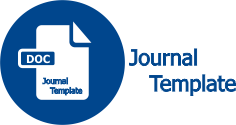Pengembangan E-Modul Berbasis Flipbook dalam Model Discovery Learning untuk Meningkatkan Motivasi dan Hasil Belajar Peserta Didik (Studi pada Materi Pokok Laju Reaksi)
(1) Universitas Negeri Makassar
(2) Universitas Negeri Makassar
(3) Universitas Negeri Makassar
(*) Corresponding Author
DOI: https://doi.org/10.26858/cer.v6i1.39490
Abstract
Keywords
Full Text:
PDFReferences
Afriani, N., Haris, M., Savalas, L. R. T., & Sofia, B. F. D. (2022). Pengaruh Modul Elektronik Kimia terhadap Hasil Belajar Siswa Kelas XI MIPA SMAN 1 Jonggat pada Materi Termokimia. Jurnal Ilmiah Profesi Pendidikan, Vol 7. No 1. Hal 84–88.
Akker, J. V. D. (1999). Principles and methods of development research. In J. van den Akker, N. Nieveen, R.M. Branch, K.L.Gustafson & T. Plomp (Eds.), Design methodology and developmental research in education and training (pp. 1-14). The Netherlands: Kluwer Academic Publishers.
Anisa, E. N., Rudibyani, R. B., & Sofya, E. (2017). Pembelajaran Discovery Learning untuk Meningkatkan Motivasi Belajar dan Penguasaan Konsep Siswa. Jurnal Pendidikan dan Pembelajaran Kimia. Vol 6. No 2. Hal 283–295.
Aprilliani, L. (2021). Pengembangan E-Modul Berbasis Konstektual Berupa Flipbook pada Materi Hidrolisis Garam. Skripsi. Yogyakarta: Universitas Sanata Dharma.
Awwaliyah, H. S., Rahayu, R., & Muhlisin, A. (2021). Pengembangan E-Modul Berbasis Flipbook untuk Meningkatkan Motivasi Belajar Siswa SMP Tema Cahaya. Indonesian Journal of Natural Science Education. Vol 4. No 2. Hal 516–523.
Baber, H. (2020). Determinants of Students Perceived Learning Outcome and Satisfication In Online Learning During The Pandemic of Covid 19. Journal of Education and e-Learning Research. Journal of Education and e-Learning Research. Vol 7. No 3. Hal 285–292.
Cahyani, A., Listiana, I. D., & Larasati, S. P. D. (2020). Motivasi Belajar Siswa SMA pada Pembelajaran Daring di Masa Pandemi Covid-19. IQ (Ilmu Al-Qur’an): Jurnal Pendidikan Islam, Vol 3. No 01. Hal 123–140.
Dinata, A. A., & Zainul, R. (2020). Pengembangan E-Modul Larutan Penyangga Berbasis Discovery Learning Untuk Kelas XI SMA/MA. Edukimia. Vol 2. No 1. Hal 6–11.
Emda, A. (2018). Kedudukan Motivasi Belajar Siswa dalam Pembelajaran. Lantanida Journal. Vol 5. No 2. Hal 172.
Herawati, N. S., & Muhtadi, A. (2018). Pengembangan modul elektronik (e-modul) interaktif pada mata pelajaran Kimia kelas XI SMA. Jurnal Inovasi Teknologi Pendidikan. Vol 5. No 2. Hal 180–191.
Kemendikbud. (2020). Surat Edaran Pelaksanaan Kebijakan Pendidikan dalam Masa Darurat Penyebaran Coronavirus Disease (COVID-19). Jakarta: Kemendikbud.
Lestari, A. (2019). Pengembangan Modul Kimia Berbasis Inkuiri Terbimbing Berorientasi Chemo-Entrepreneurship Materi Sifat Koligatif Larutan. Journal of Tropical Chemistry Research and Education. Vol 1. No 1. Hal 29–35.
Mulyasa, E. (2006). Kurikulum yang Disempurnakan Pengembangan Standar Kompetensi dan Kompetensi Dasar. Bandung: PT. Remaja Rosdakarya.
Novitasari, A., & Tiara, A. D. (2022). Pengembangan E-Modul SETS Berbasis Flipbook Maker Alternatif Pembelajaran Masa Pandemi Covid -19: Pengembangan E-Modul SETS Berbasis Flipbook Maker Alternatif Pembelajaran Masa Pandemi Covid -19. Jurnal Bioshell. Vol 11. No 1. Hal 11–18.
Prastowo, A. (2011). Panduan Kreatif Membuat Bahan Ajar Inovatif. Yogyakarta: Diva Press.
Purwaningsih, U. R. (2018). Pengembangan Modul Elektronik Materi Larutan Penyangga untuk Kelas XI SMA [Skripsi]. FMIPA UNM.
Rahman, R. A. (2021). Pengembangan Modul Elektronik Berbasis Problem Based Learning (PBL) pada Materi Termokimia Menggunakan Aplikasi Kvisoft Flipbook Maker. Skripsi. Medan: UNIMED.
Romayanti, C., Sundaryono, A., & Handayani, D. (2020). Pengembangan E-Modul Kimia Berbasis Kemampuan Berpikir Kreatif dengan Menggunakan Kvisoft Flipbook Maker. Alotrop. Vol 4. No 1.
Soejana, Y., Anwar, M., & Sudding, S. (2020). Pengaruh Media E-Modul Berbasis Flipbook pada Model Problem Based Learning (PBL) Terhadap Motivasi dan Hasil Belajar Peserta Didik Kelas XII SMA Negeri 1 Wajo (Studi Pada Materi Pokok Sifat Koligatif Larutan). Chemica: Jurnal Ilmiah Kimia Dan Pendidikan Kimia. Vol 21. No 2. Hal 163–172.
Sole, F. B., & Anggraeni, D. M. (2018). Inovasi Pembelajaran Elektronik dan Tantangan Guru Abad 21. Jurnal Penelitian dan Pengkajian Ilmu Pendidikan: e-Saintika. Vol 2. No 1. Hal 10–18.
Sumanik, N. B., Nurvitasari, E., & Siregar, L. F. (2021). Flip Book Maker Based Water Chemistry E-module Development as a Distance Learning Alternative. Advances in Social Science, Education and Humanities. Vol 603.
Susilawati, S., Pramusinta, P., & Saptaningrum, E. (2020). Penguasaan Konsep Siswa Melalui Sumber Belajar e-Modul Gerak Lurus dengan Software Flipbook Maker. UPEJ Unnes Physics Education Journal, Vol 9. No 1. Hal 36–43.
Tegeh, I. M., Jempel, I. N., & Pudjawan, K. (2014). Model Penelitian dan Pengembangan. Yogyakarta: Graha Ilmu.
Wahyuni, Z. A., & Yerimadesi, Y. (2021). Praktikalitas E-Modul Kimia Unsur Berbasis Guided Discovery Learning untuk Siswa Sekolah Menengah Atas. EDUKATIF : JURNAL ILMU PENDIDIKAN. Vol 3. No 3. Hal 680–688.
Article Metrics
Abstract view : 399 times | PDF view : 67 timesRefbacks
- There are currently no refbacks.
Jurnal dipublikasikan oleh: Program Studi Pendidikan Kimia
Program Pascasarjana Universitas Negeri Makassar
Alamat JL. Bonto Langkasa Gunung Sari Makassar, 90222
Kampus PPs UNM Makassar Gedung AD ruang 406 Lt 4, Indonesia.Phone 082393643737/085145825311/085242228678
CER UNM Indexed by:

Chemistry Education Review (CER) is licensed under a Creative Commons Attribution-NonCommercial 4.0 International License.










